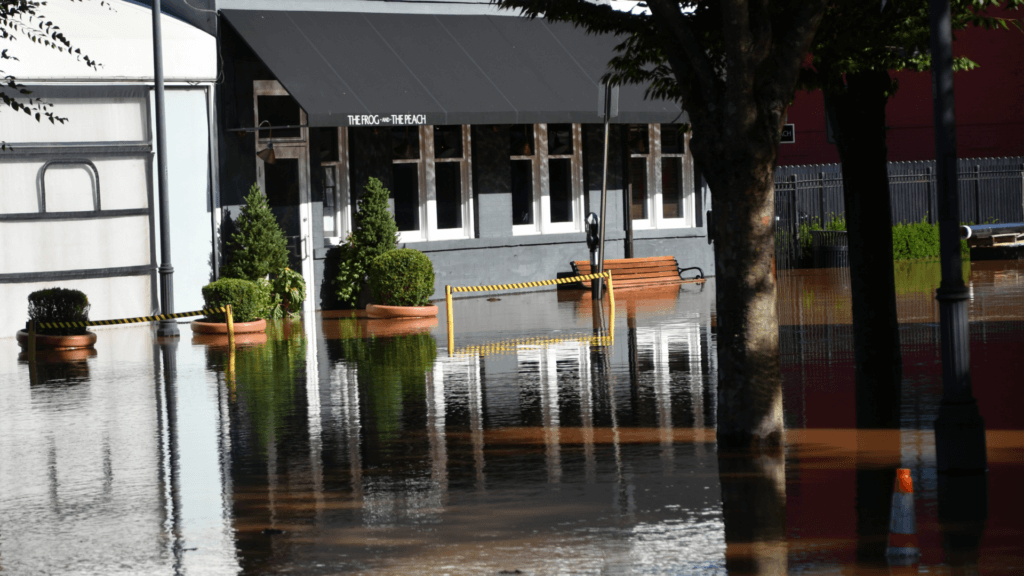
After suffering the impact of two hurricanes back to back in 2020, Louisiana has found itself reeling once again from the wrath of another storm nearly a year later. As residents and business owners started the recovery process following Hurricane Ida, insurance claims began pouring in with losses estimated to reach $25 billion. With this in mind, those affected by Hurricane Ida must understand the ways insurance providers could take advantage of them during the claims process.
Hurricane Ida Causes Flurry of Insurance Claims
Hurricane Ida made landfall on the Louisiana coast on August 29 of this year – exactly 16 years to the day Hurricane Katrina devastated the state in 2005. Identified as a tropical storm until three days before impact, Ida quickly intensified into a dangerous Category 4 hurricane. The storm sustained winds of up to 150 miles per hour (MPH) and caused catastrophic flooding across multiple states as it moved further north. Before Ida, New Orleans had already received over 65 inches of rain this year, which is already over the existing average rainfall of 62 inches.
Following Hurricane Ida, Louisiana became the first state in the U.S. to endure record back-to-back years of being impacted by a hurricane with wind speeds of 150 MPH or higher. In fact, over the last four years, the Gulf Coast has had Category 4 or 5 hurricanes make landfall each year. Even more concerning, Hurricane Ida did not rapidly weaken after making landfall – a characteristic common among hurricanes. Rather, Ida maintained its Category 4 strength for six hours after landfall before moving northeast and impacting states like New York and New Jersey, both of which suffered record rainfall and flooding. New York City issued its first-ever flash flood emergency because of the storm, stretching nearly 200 miles to Philadelphia.
With this range of destruction, it’s no wonder property damage insurance claims began pouring in after the storm cleared and the recovery process could begin. According to a Business Insurance article, preliminary estimates showed losses from Ida could reach up to $25 billion. This would put Ida well ahead of losses caused by February’s Winter Storm Uri, which led to roughly $15 billion in insured losses.
Despite these findings, however, it could take months to assess the full magnitude of Ida’s impact. One of the factors contributing to this is the amount of corresponding business interruption claims, which could be sizable as millions went without power for days to weeks after the storm. Another complicating factor involves processing the volume of claims for other insured assets such as private and commercial vehicles, watercraft, and more. Finally, while the economic toll of Ida is likely to reach double digits in billions of dollars, a large portion of claims are anticipated to not be covered by insurance. This includes damage to infrastructure or properties without active flood insurance policies. With this in mind, commercial property owners need to understand how to navigate potential bad faith tactics insurance providers could use to avoid paying out on claims.
Hurricane Ida Bad Faith Commercial Insurance Claims
Filing an insurance claim for hurricane-related property damage can be a cumbersome process on its own. Because there is often no standard policy solely for hurricanes, multiple policies must be taken out to ensure proper coverage for hurricane-related damage. However, even with the right policies in place, a valid commercial insurance claim for Hurricane Ida damage can still be subject to bad faith tactics by insurance providers.
Acting in bad faith is broadly defined as utilizing unfair or dishonest practices. States like Texas and Louisiana have regulations in place that help to curb bad faith tactics, such as the duty of good faith and fair dealing. Even with these deterrents in place, insurers continue to thwart the claims process to turn a profit. Some of the most common bad faith tactics commercial policyholders should look out for include:
- Unreasonable Delays: Insurance companies may drag out the time it takes to fully investigate a claim before agreeing to cover the cost. This is commonly done to see if the policyholder will simply give up pursuing a claim. In most cases, states have a set deadline of 60 days for insurance providers to accept or deny a claim. If they do not meet this timeframe without asking for an extension, contact an insurance lawyer immediately.
- Failure to Conduct a Complete Investigation: Most insurance policies contain an implied duty of good faith and fair dealing. This requires an insurance company to conduct prompt and thorough investigations into a policyholder’s claim. If this is not done, then the insurance company could be cited for utilizing bad faith tactics.
- Deceptive Practices: A common deceptive practice is when an insurer fails to disclose the existence of coverage, so they don’t have to pay a claim. If an insurance company fails to notify the claimant of a claim filing deadline and doesn’t provide the papers necessary for the policyholder to complete the claim on time, the insurer could be engaging in tactics classified as bad faith and deceptive.
- Underpayment: Tactics like underpaying a valid insurance claim is an act of bad faith. Insurers do this to bolster their profits.
- Policy Misrepresentation: Insurance providers can deliberately misinterpret policy language in communications with a policyholder such that it appears to read as against the claimant. As a part of the duty of good faith and fair dealing, insurance providers must be truthful in their statements about their policies.
- Unreasonable Denial: Under state law, insurance providers are required to use only fair claims practices. If an insurer blatantly denies a claim that should be covered under the policy, this constitutes acting in bad faith.
Hurricane Ida Insurance Coverage Attorneys
Hurricane Ida undoubtedly rocked the state of Louisiana, leaving its residents to once again pick up the pieces after another natural disaster. As claims continue to be filed for Ida-related damages, commercial property owners must be diligent when dealing with their insurance providers. At Raizner Law, we are familiar with the many bad faith tactics insurers use to avoid paying valid claims for those who desperately need financial help to recover. If you or someone you know needs assistance with a Hurricane Ida property damage insurance claim, we can help. Contact our office today to see how we can assist with your claim.


